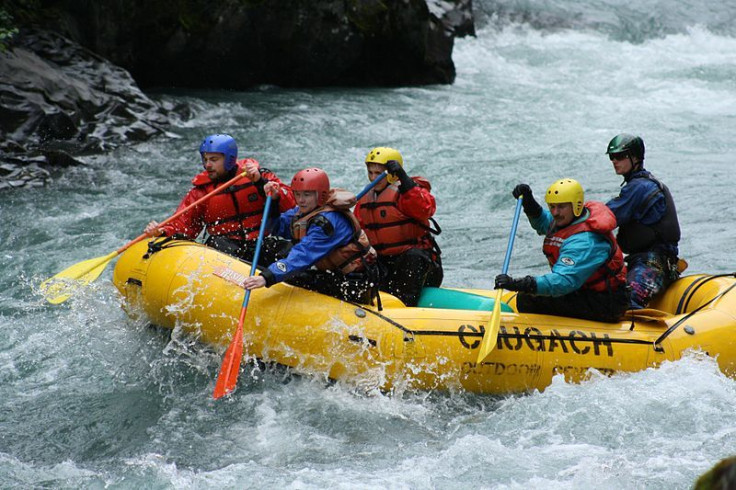Nature Activities Improve Veterans' Mental Health By Recreating Positive Aspects of Military Service

Post-traumatic stress disorder (PTSD) affects almost 13 percent of Iraq and Afghanistan veterans when they return from service. One Veterans Affairs report found that out of 830,000 veterans treated at veteran's hospitals over the past 10 years, 29 percent had PTSD. While therapies that forced veterans to relive experiences have been shown to help some get over their stress, one grassroots environmental organization is taking an alternative route by providing nature activities to veterans, and it's improving their mental health.
The Sierra Club has been helping veterans improve their mental health by providing outdoor recreation programs. They believe these programs, which stay away from psychological counseling or therapy, and focus more on fly-fishing, kayaking, and backpacking, provide many of the positive experiences that came with military service.
"They are outside, in a group, sharing similar mental models, and in a sense, on a mission," Jason Duvall, a research scientist at the University of Michigan School of Natural Resources & Environment, said in a statement. He believes veterans can identify with nature activities, which also involve being physical, trying to reach a goal, and companionship.
To see if the program was working, researchers surveyed 98 veterans one week before and one week after participating. They asked the veterans for demographics and background information, as well as their psychological well-being, social functioning, outlook on life, and their engagement in activities.
They all went on multi-day nature trips in groups of between six and 12 people, and participated in camping and hiking, as well as the aforementioned activities.
Prior to their participation, more than half of them reported experiencing daily mental or physical health problems. One week after the nature activities, their reported measures of psychological well-being improved by over 10 percent, social functioning improved by nine percent, and outlook on life increased by eight percent. Some of them even reported better mental health a month later during a follow-up survey.
"This trip helped me to reevaluate what's important in life," said Tim, 52, a Navy veteran. "It was nice to live a week without being 'plugged in' and take in the great outdoors."
Dan, a 39-year-old Army veteran shared a similar sentiment, saying, "It helped me to remember who I was and enjoy something I haven't in a long time."
The outdoor therapy that The Sierra Club provides is much more positive than other therapies currently used for treatment of mental distress. One therapy, known as prolonged exposure therapy involves reintroducing some of the situations a veteran experienced as a method of "numbing" their pain.
"One of the important factors in chronic PTSD is avoidance — avoiding thinking about the trauma and avoiding places that remind you of the trauma or are similar," Edna Foa, head of the Center for the Treatment and Study of Anxiety at the University of Pennsylvania, told Reuters." The whole point of the therapy is in "helping the patient confront the memories and confront the situations they avoid."
"The findings suggest that extended group-based nature recreation can have significant positive impacts on veterans struggling with serious health problems," Duvall said. "Although more research is needed, and many questions remain, the use of extended group-based outdoor recreation programs to ease veterans' transition back into civilian life seems to be a promising approach."
Published by Medicaldaily.com



























